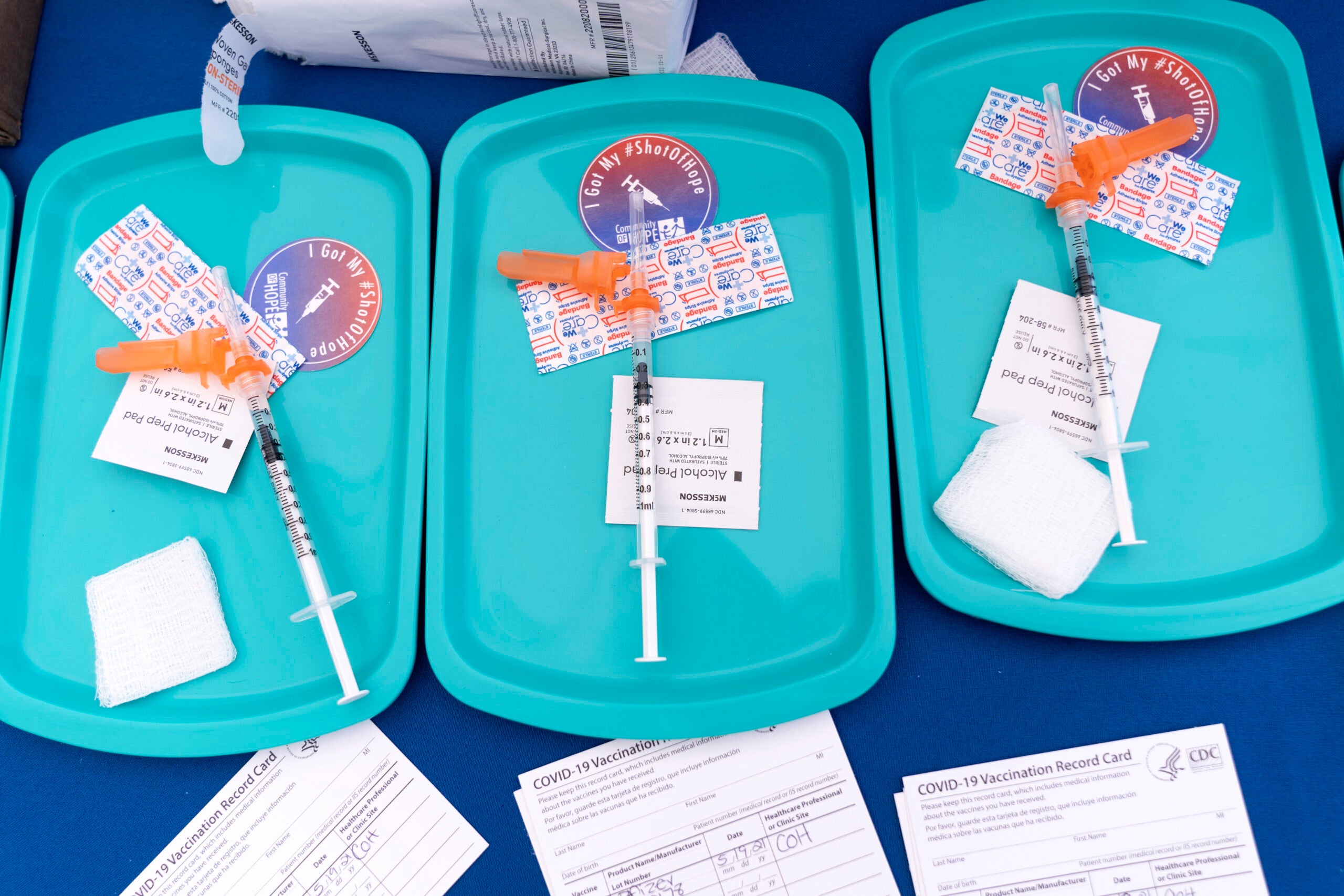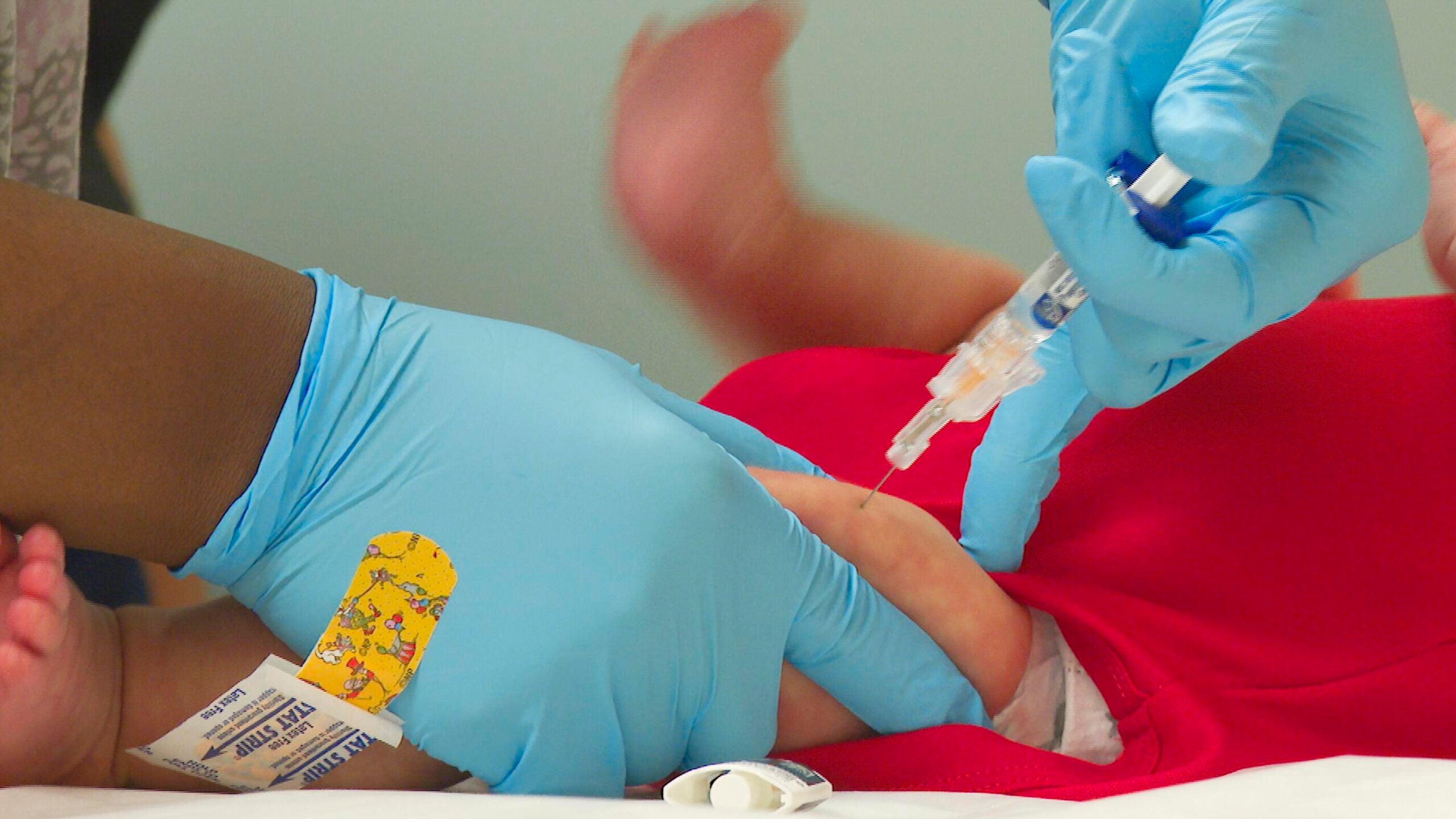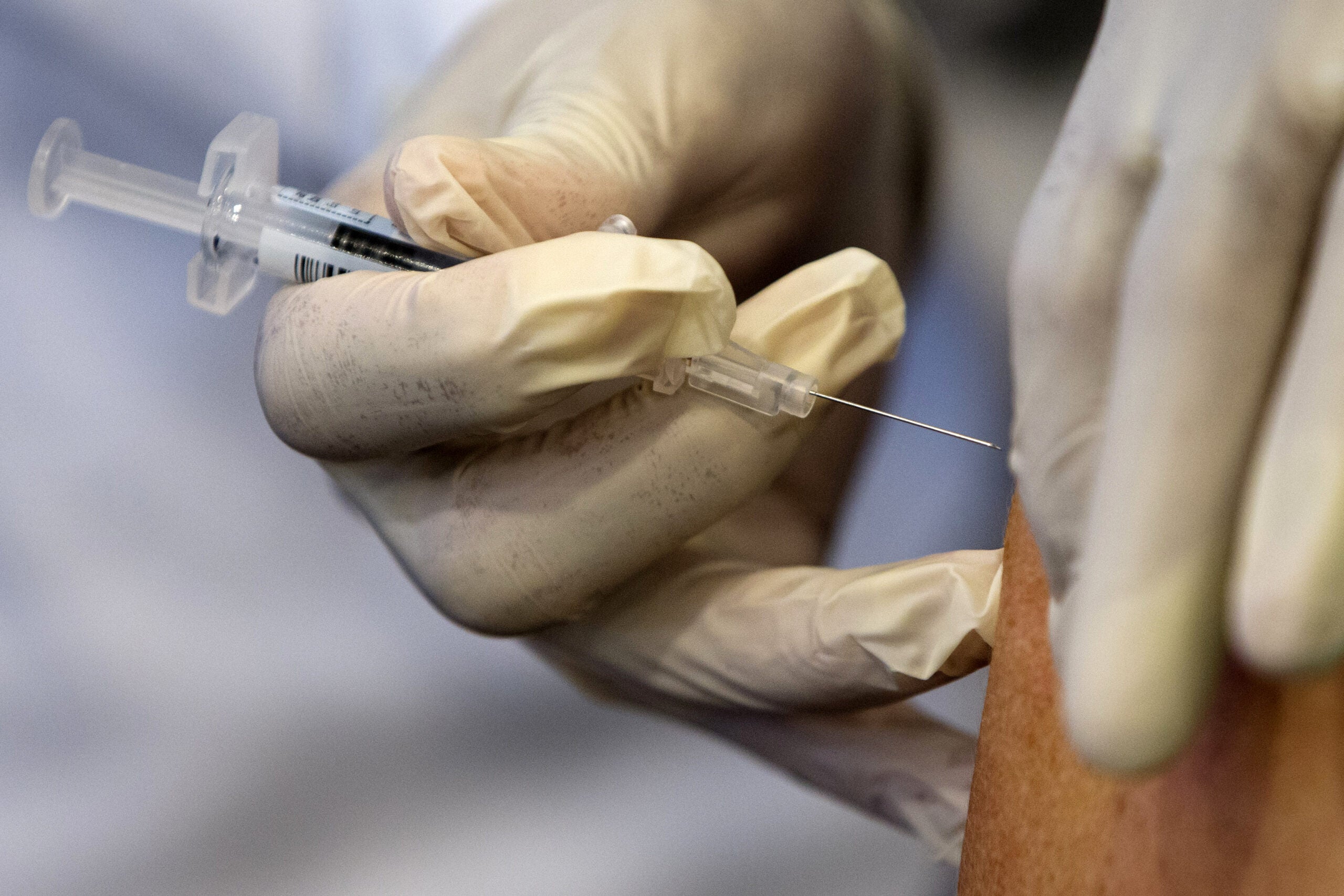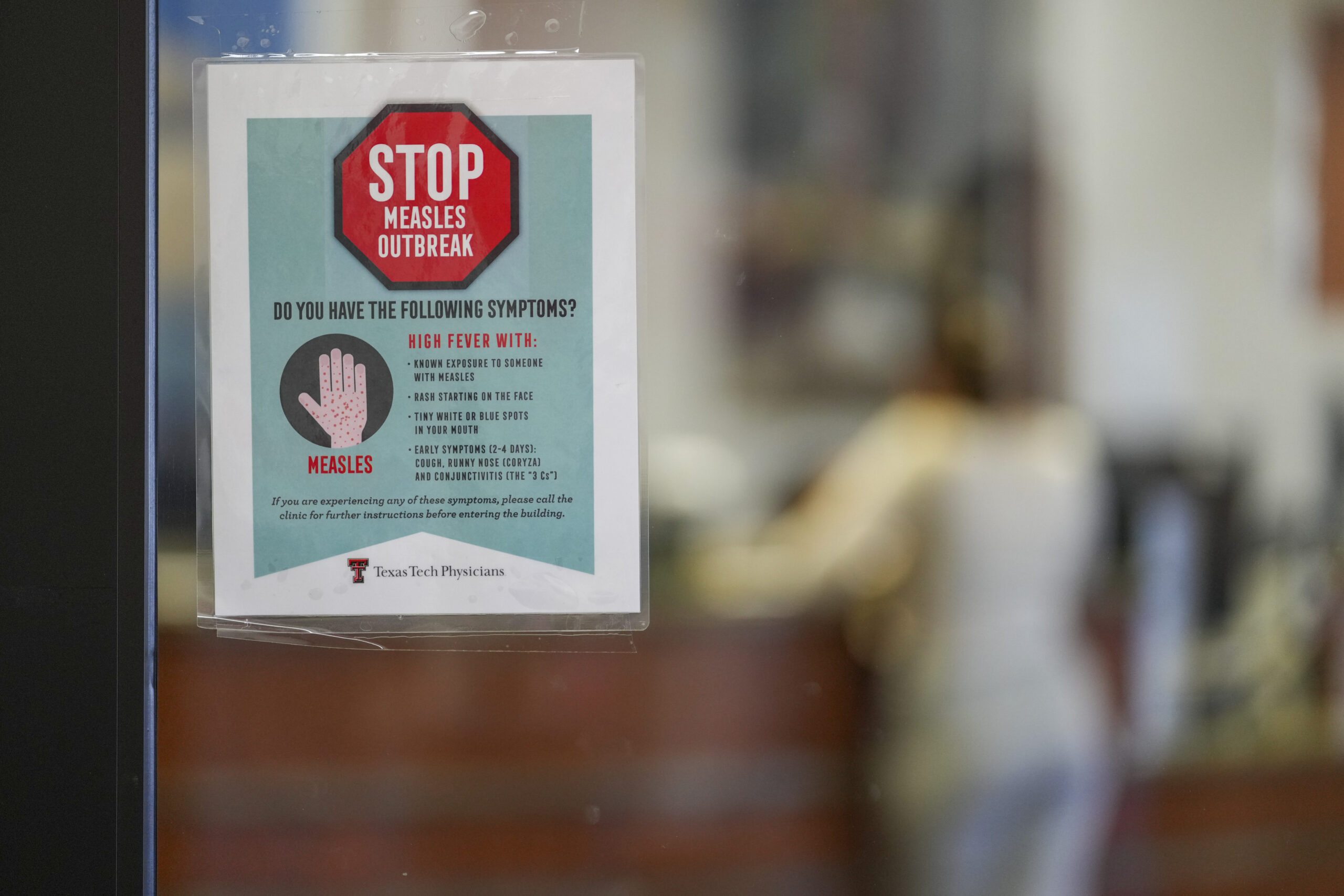New data from the Wisconsin Department of Health Services show people who have been vaccinated and boosted against COVID-19 were infected at a higher rate in April than those who were unvaccinated. But the state’s epidemiologist stresses data is clear the effectiveness of vaccines in preventing against serious illness and death remain high.
DHS updated it’s “Illness After Vaccination” webpage on Thursday to include data on people who have gotten booster shots after completing their vaccine series. It shows that in April the rate of confirmed and probable COVID-19 cases were highest among those who have completed the series and gotten a booster at 507 per 100,000. Those who were unvaccinated had an infection rate of 420.8 per 100,000. Those who completed the vaccine series but had not received a booster shot had an infection rate of 211.5 per 100,000.
News with a little more humanity
WPR’s “Wisconsin Today” newsletter keeps you connected to the state you love without feeling overwhelmed. No paywall. No agenda. No corporate filter.
During a media briefing, state epidemiologist Dr. Ryan Westergaard said the data comes from hospital and local health department reporting and doesn’t represent a randomized, clinical research study and that there are potential biases built into the data.
“People who go get a booster might also be more likely to go get tested if they develop symptoms,” Westergaard said. “People who get a booster might change their behavior, so they are exposed more. There are a number of explanations.”
Westergaard said the bottom line is that the effectiveness of current vaccines preventing infections from omicron variants of the coronavirus has gone down.
“But the effectiveness for preventing death and severe disease has remained high,” Westergaard said.
The DHS data from April show Wisconsinites who were unvaccinated were hospitalized at twice the rate of those who have been vaccinated. Residents who were unvaccinated died from COVID-19 at a rate seven times higher than those who completed their vaccine series.
Coronavirus infections were on the rise in May, though the latest data show a slight dip in cases. On Thursday, DHS reported a seven-day average of 1,823 new cases. That’s down from a seven-day average of 2,201 cases reported on May 15.
“So, we’re optimistic that the weather stays nice as people get vaccinated and recover and have some immune protection, that this wave won’t be as severe as ones that we’ve seen in the past,” Westergaard said.
But Westergaard said even with the slight decline and new antiviral drugs available at hospitals to treat severe COVID-19 illness, people need to be cautious during the Memorial Day weekend.
“A lesson that we’ve learned repeatedly during the two-plus years of the pandemic is that holiday weekends like Memorial Day, when people are gathering, it poses a risk for transmission,” he said.
Wisconsin Public Radio, © Copyright 2026, Board of Regents of the University of Wisconsin System and Wisconsin Educational Communications Board.







